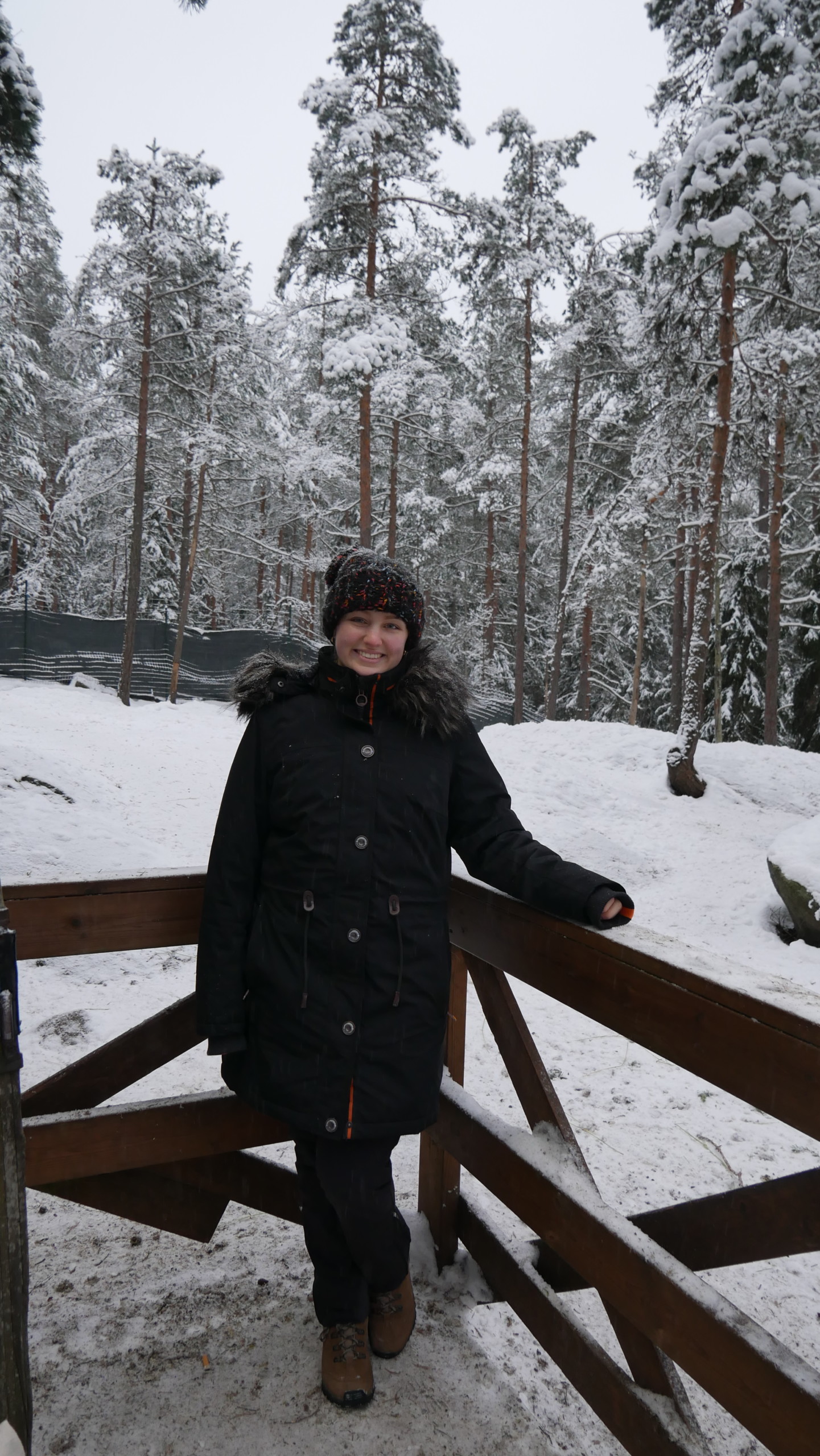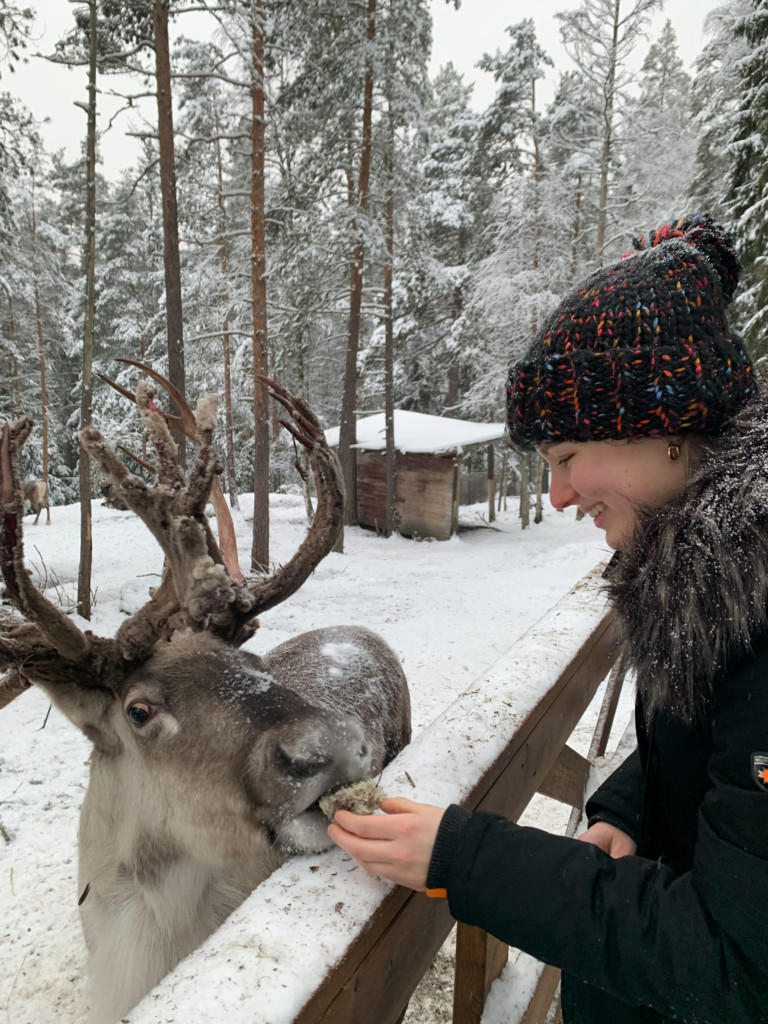Traveling to another country after or during school or between bachelor’s and master’s degrees as a traineeship, as an au pair or a backpacker is something a lot of young adults are keen to do.
Many imagine such a trip as a pure adventure, during which you meet many people from all over the world, grow beyond yourself, and have fun. Many travel magazines, blogs and forums encourage people to start traveling even if they are not proficient in many different languages, as it is possible to survive in many countries by knowing at least English. In big cities, it will usually be the case that English is a good way to go, but if someone decides to volunteer, they should inevitably get to grips with the local language at least a little, since volunteer projects are often in environments where English might not be broadly understood.
In addition, the geographical location of the site is crucial and can pose various challenges. For example, in Finland there are two official languages: Finnish and Swedish, both of which also have varying dialects.
In Finland, you can generally communicate well in English with young adults, but often less well with children and older people. Since the volunteers often work with children and older people, it is good if you as a volunteer learn the basics of the respective national language (in my case: Finnish).
Gender-neutral pronouns and other quirks of Finnish language
I tried to memorize a few words and short sentences before starting my voluntary service and I read several books about Finland to learn a bit about the culture, history, and language. I wrote down a few words so that I might understand the context better and listened to the Finnish language with Google Translate so I know how to pronounce the words. I quickly realized that in the Finnish language, many words end with an ”I” that sound and are spelled very similarly in German, which is my native language. This was also confirmed for many things when I arrived. For example, the post office is simply called “posti”, the kiosk simply “kioski”, the sugar “sokeri”, the tomato “tomaatti” and what I find really funny is that the joke (in German “Witz”) is called “vitsi”. However, in a conversation I have already appended an “I” to a German word and hoped that this also existed in Finnish. This has already led to one or two laughs.
Furthermore, I find it interesting that Finnish is a gender-neutral language. There is only one third person pronoun, ”hän”, there is no ”she” or ”he”. This was very unusual for me, but in the end, this is almost the only rule in Finnish that is easy.
”Snow is not just snow in Finnish. For example, there is the wet snow, the muddy snow, the snow to build a snowman with and the snow one cannot build a snowman with.”
However, Finnish has umpteen different words for an event or an object. When I wanted to say it was snowing, I only knew one word for snow in Finnish, but snow is not just snow in Finnish. For example, there is the wet snow, the muddy snow, the snow to build a snowman with and the snow one cannot build a snowman with. So the Finnish language is very versatile in other respects.
I was also very surprised that the word ”please” does not exist in Finnish and that the word ”thank you” is rarely used. Even when Finns speak English, they often omit these words. It doesn’t sound that friendly. At first, I was not sure if anything had happened or if they were struggling with each other or with me, until I realized that many filler words are simply left out in Finland. Also, there are sentences in English and German that have multiple meanings, but apparently not in Finnish. In the meantime, I’ve gotten used to it.
Multilingual environments offer many ways of communicating
Since many Finns also speak German, I can contribute here in both English and German. I was amazed that some of the children in my project can introduce themselves to me in German. I didn’t expect that at all. I also find it amusing when I ask people on the street where there is something and they don’t speak English but German and then we speak German. As soon as I registered, the employee could and wanted to speak German with me because she had learned it at school for ten years.
In addition, since Swedish, the second official language in Finland, is a mixture of German and English, you can see a lot of familiar sounding words on the signs around the city. but you can also find terms in conversations that help us to keep the conversation going.
However, I was very surprised that Finns don’t speak English as fluently as I expected. Since most films, series and books are not translated into Finnish, I assumed that they would speak English like a second mother tongue. This made me think that I could further refine my already good knowledge of English here.
Unlike most other volunteers, I initially lived with an English host mother, which allowed me to improve my English after all.
In summary, it becomes clear that you can learn something and develop something with every language. That’s why I think it’s great that we, as volunteers, are given the opportunity to take part in language courses. In doing so, we not only learn how to express ourselves or conduct conversations, but also get to know the culture and history of the country better.
I try to bring every word I learn into a conversation right away in my project and I’m totally happy when the children understand me. However, I often do not understand what they answer. We have had many funny situations here and communicate with gestures and a mixture of English, Finnish, German and a little Swedish.
Text: Franziska Müller
Photos: Johanna Gehlen
The article has been published in the magazine MaailmanVaihtoa – Volunteers’ Voices 1/2023.


